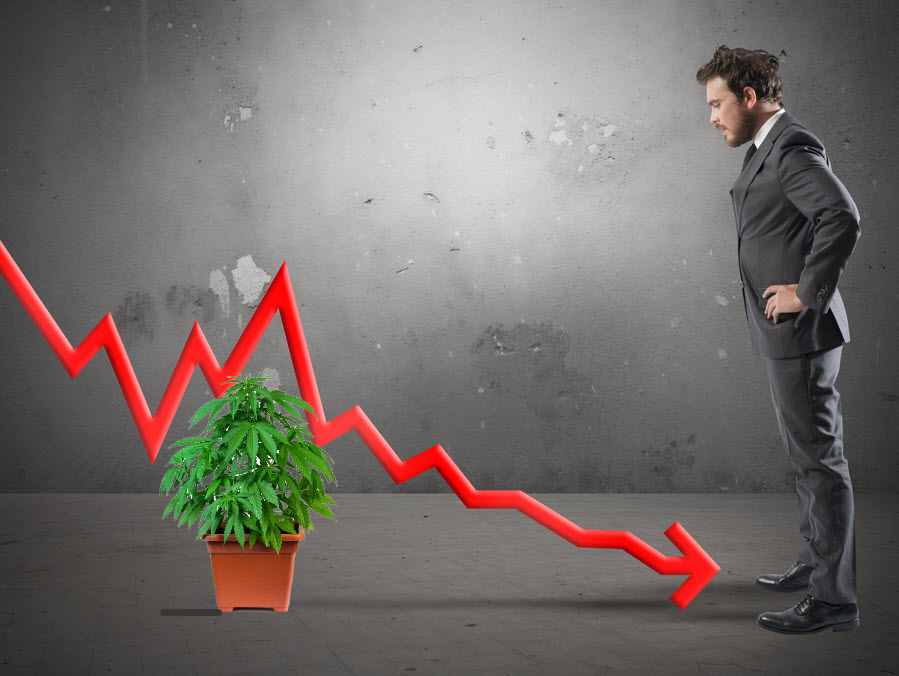Cannabis News
How Many Thoughts are Truly Your Own?
Published
1 year agoon
By
admin

Stoner Thoughts: How Many Thoughts are Truly your own?
There’s something undeniably reflective about cannabis. It’s like a magnifying glass for the mind, making you acutely aware of things you might otherwise overlook. Picture this: you spark up that joint, sink into your favorite couch, and press play on that classic album. And then, it happens—BAM! The bass riff hits you like a freight train, resonating through your very soul in a way you’ve never quite experienced before. Suddenly, you’re hearing music not just with your ears but with your entire being. Cannabis has a magical way of opening your senses to the hidden intricacies of life, whether it’s the nuances of a song, the colors of a sunset, or the profound questions lurking in your mind.
It’s in this altered state of consciousness that many stoners find themselves drifting into the deeper inquiries of existence. Questions that, in the hustle and bustle of everyday life, might remain buried beneath the surface, emerge like ancient relics waiting to be unearthed. One such question, perhaps one of the most intriguing, is this: “How many thoughts are truly my own?”
As the cannabis-induced euphoria washes over you, it’s not uncommon to ponder the nature of thought itself. Are the ideas floating through your mind original, or are they merely echoes of external influences? In a world bombarded by information, where every scroll, click, and conversation leaves an imprint on your psyche, it’s a legitimate query.
Cannabis, with its ability to heighten introspection, forces you to consider the possibility that your thoughts are like a patchwork quilt stitched together from the fabric of society, a fusion of inherited beliefs, media influences, and personal experiences. It’s as if you’re standing at the center of a bustling crossroads, where the thoughts of countless others intersect with your own.
Yet, here’s the beauty of stoner philosophy: it doesn’t stop at existential pondering. It’s a journey that leads to self-discovery and, ultimately, a deeper connection with the world around you. It’s about recognizing the interconnectedness of all thoughts, realizing that in this vast tapestry of human consciousness, your ideas are both unique and shared.
In this article, we’ll dive into the intriguing realm of stoner thoughts. We’ll explore the profound questions that often arise when cannabis unlocks the doors of perception. And as we journey through the haze of introspection, we’ll discover that while your thoughts may be influenced by the world, they remain uniquely yours—a testament to the incredible tapestry of human existence.
So, let’s embark on this cerebral adventure, where we’ll challenge the boundaries of thought, ponder the mysteries of consciousness, and perhaps, just perhaps, stumble upon the elusive answer to the question: How many thoughts are truly my own?
A thought—a seemingly simple concept that encapsulates the essence of our existence. But what exactly is a thought? Is it a fleeting spark of consciousness, a burst of electrical activity in the brain, or something more profound, perhaps even mystical?
As we navigate the intriguing realm of stoner thoughts, we find ourselves delving into the very nature of these mental phenomena, exploring their origins, behavior, and the intricate tapestry of influences that shape them.
Defining the Thought
Let’s start with the basics.
A thought can be defined as a mental process that encompasses perception, cognition, and the generation of ideas or mental representations.
It’s the currency of our inner world, the silent dialogue that unfolds within our minds, often without conscious effort. But peering deeper, we find that thoughts are more than just cognitive events; they possess a life of their own.
Intrusive Thoughts: The Uninvited Guests
Have you ever experienced an intrusive thought?
Those uninvited, often unsettling musings that seem to arrive unbidden, challenging your ethical boundaries and shaking the foundations of your beliefs. Intrusive thoughts have a peculiar nature—they don’t seem to respect your personal space. They can be as fleeting as a shadow or as persistent as an unwelcome guest overstaying their welcome.
These thoughts are like rogue agents within the complex network of your consciousness, and they raise an interesting question: Do thoughts possess a degree of autonomy, a will of their own?
Familiar Thoughts: The Inherited Legacy
In contrast to intrusive thoughts are the familiar ones.
These are the notions and ideas that feel as though they’ve been ingrained in your psyche since time immemorial.
You just “know” them, almost instinctively. But where do these familiar thoughts come from? They often find their roots in societal norms, cultural conditioning, and personal experiences. These thoughts, while not entirely original, are the backbone of your worldview, influencing your beliefs, values, and even your sense of self.
Original Thoughts: Unveiling the Unique
And then there are original thoughts—the rare gems of the mind that are uniquely yours.
They emerge from the depths of your consciousness, shaped by your individual experiences, perspectives, and creativity. These thoughts have a distinct flavor, an unmistakable authenticity that sets them apart. They are the sparks of innovation, the cradle of invention, and the building blocks of progress.
However, in the grand tapestry of human consciousness, original thoughts are a scarce commodity. They exist in a delicate balance between the influences of external ideas and the depths of your inner creativity. The vast majority of our thoughts are woven from the fabric of collective human experience, a complex interplay of learned knowledge and innate cognition.
In the vast tapestry of human consciousness, thoughts are the threads that weave the fabric of our reality. They are not mere mental chatter; they are the architects of our beliefs, the conductors of our actions, and the sculptors of our experiences.
Understanding the profound impact of the content of your thoughts is akin to unlocking the secrets of the universe itself, for it is within these thoughts that the essence of your existence resides.
The Architects of Behavior
First and foremost, the content of your thoughts plays a pivotal role in shaping your behavior. Think of your thoughts as the blueprints of a grand edifice—the structure your actions will ultimately mimic. Positive, constructive thoughts tend to manifest as purposeful, goal-oriented behaviors.
Conversely, negative or self-deprecating thoughts can lead to actions rooted in doubt, fear, and insecurity.
Consider this scenario: You wake up one morning with a series of positive thoughts about the day ahead. You envision success, visualize achievements, and embrace a can-do attitude. As a result, you tackle your tasks with enthusiasm and resilience, pushing through obstacles with unwavering determination.
Your thoughts have set the stage for success, and your behavior follows suit.
Expectations: Shaping the Unseen Landscape
Your thoughts also wield considerable power in shaping your expectations. They are like lenses through which you view the world, coloring your perception of reality.
If your thoughts are infused with optimism and hope, you are more likely to anticipate favorable outcomes. Conversely, pessimistic thoughts can cast a shadow of doubt over your expectations.
Let’s delve into the realm of relationships for a moment. Imagine you meet someone new, and your thoughts are filled with distrust and apprehension. You expect this person to be insincere or unreliable.
As a result, your interactions are tainted by these negative expectations, possibly sabotaging what could have been a positive connection. The content of your thoughts, in this case, has shaped your expectations, influencing your experience.
Creating Your Reality
The profound link between thoughts and reality extends even further, raising a tantalizing possibility: You have the power to shape your world according to your thoughts. The age-old adage, “What you think, you become,” holds more truth than meets the eye. Your thoughts act as the architects of your destiny, laying the foundation for the world you inhabit.
Consider individuals who have achieved remarkable feats or overcome insurmountable odds. Behind their success often lies a resolute mindset—an unwavering belief that their thoughts can manifest in reality.
This concept is not confined to grand accomplishments but can be applied to everyday life. By focusing your thoughts on positive outcomes, you can influence your circumstances and steer your life in the desired direction.
Changing the Content of Your Thoughts
The question that inevitably arises is: How does one change the content of their thoughts? The process requires a blend of self-awareness, mindfulness, and intentional effort.
-
Intentional Thought: Consciously choose the thoughts you wish to entertain. Challenge negative or limiting beliefs by reframing them in a positive light. Affirmations, visualization, and gratitude exercises are tools that can aid in this process.
In the kaleidoscope of human cognition, we’ve journeyed through the intricate landscapes of thought—the very essence of our existence.
We’ve contemplated the nature of thoughts themselves, from their origins to their behavior, and pondered the potent influence of their content.
Now, it’s time to weave these threads of understanding into a cohesive tapestry, and in the process, explore how cannabis, with its reflective nature, offers us a unique lens through which to view the enigmatic realm of our own minds.
Cannabis, often celebrated for its ability to elevate the senses and ignite creativity, possesses a remarkable quality—it encourages introspection. It’s as if it peels back the layers of consciousness, inviting us to explore the depths of our thoughts with an open and curious mind.
This reflective aspect of cannabis is a key that unlocks the door to abstract contemplations—the kinds of thoughts that lead to questions like, “Where do thoughts originate?” and “Are all my thoughts truly my own?”
Indeed, you don’t need cannabis to engage in philosophical musings, but it undoubtedly acts as a lubricant for the profound. When that aromatic smoke curls around your senses, it’s as if a curtain is drawn back, revealing hidden corners of your psyche.
In this altered state of awareness, the mind becomes a playground for abstract ideas, and you become the explorer.
As the cannabis-induced musings unfurl, you may find yourself delving into the origins of thought. Are your beliefs, values, and ideologies truly yours, or were they implanted by external influences like society, culture, or upbringing? It’s a question that transcends mere intellectual curiosity; it challenges the very foundations of your identity.
The reflective nature of cannabis also invites contemplation of the intricacies of thought behavior. How do thoughts seem to possess a will of their own, often flitting into consciousness uninvited?
Why do some thoughts manifest as intrusive, while others feel familiar and rooted in your psyche? What about those elusive, original thoughts—the ones that feel like fragments of pure creativity? By examining the nuances of thought behavior, you begin to understand the intricacies of your inner world.
In the end, cannabis serves as a catalyst for self-discovery, offering a unique vantage point from which to ponder the mysteries of thought. It’s a tool that, when wielded with mindfulness and intention, can peel back the layers of conditioned thinking and reveal the essence of your own consciousness.
So, whether you’re sitting in quiet contemplation or sharing deep conversations with fellow stoners, remember that cannabis, with its reflective nature, provides a canvas upon which you can paint the abstract questions of existence. It’s an invitation to journey within, to explore the origins, behaviors, and content of your thoughts, and to unlock the profound mysteries of your own mind—one toke at a time.
CANNABIS AND DEEP THOUGHTS, READ ON…
You may like
-


Buddha Chief raises vibrations at new Housing Works dispensary in NoMad
-


3 best THCA vape carts of 2025 by Leafly
-


From client to co-founder, Storz & Bickel executive on US tour to drum up cannabis business
-


UNDERSTANDING CANNABIS AND CANNABINOIDS (THC and CBD)
-


High Stakes and High Demand: Will Las Vegas Finally Allow Cannabis Near Casinos?
-


Cannabis Tourism in 2025: Destinations, Trends, and Tips
Cannabis News
America is Rethinking Marijuana Legalization
Published
3 days agoon
March 1, 2025By
admin

Rethinking Marijuana Legalization: A Response to the National Review
Cannabis legalization has swept across America in waves, creating a patchwork of policies that vary dramatically from state to state. Some jurisdictions embrace full recreational use, others permit medical applications only, while some maintain total prohibition. This inconsistent legal landscape makes it nearly impossible to accurately measure the success or failure of legalization efforts. Without uniform policies and implementations, any cost-benefit analysis becomes murky at best.
In this fragmented environment, opinions about cannabis legalization remain sharply divided. Some celebrate newfound freedoms and opportunities, while others lament perceived social costs and unintended consequences. The National Review recently published an opinion piece questioning whether we should reconsider marijuana legalization altogether, citing several issues they believe undermine the case for legal cannabis.
Today, I’m going to examine these claims with a critical eye. While I agree that we absolutely should “rethink” marijuana legalization, my conclusion differs dramatically from the National Review’s perspective. Rather than retreating from legalization, I believe we need to push forward with more comprehensive reforms that address the legitimate concerns while delivering on the promised benefits.
The current half-measures and regulatory inconsistencies have created a situation where neither prohibitionists nor advocates are satisfied with the outcomes. Only through thoughtful, evidence-based policy adjustments can we realize the full potential of legalization while minimizing downsides. So yes, let’s rethink marijuana legalization – but let’s make sure we’re using all the available data and considering the root causes of any implementation problems.
The National Review piece relies heavily on arguments from Manhattan Institute Senior Fellow Steven Malanga, who suggests legalization has failed to deliver on its promises. The article highlights several key complaints:
-
The pervasive smell of marijuana in public spaces
-
Failure to eliminate black markets
-
Disappointing tax revenue that sometimes requires taxpayer subsidies
-
Increased usage rates contrary to predictions
-
Health concerns, particularly regarding psychosis
-
Perceived connections between cannabis and “social breakdown”
Let’s tackle these points one by one:
The Smell: While cannabis odor can be noticeable, this concern fundamentally misunderstands the concept of liberty in a diverse society. If someone is consuming cannabis in their private residence or in designated areas, their personal choices shouldn’t be criminalized simply because others find the smell unpleasant. Just as we accommodate cigarette smokers in designated areas and don’t ban cooking pungent foods, cannabis consumption can be managed through reasonable time, place, and manner restrictions. The development of cannabis social clubs, similar to cigar lounges, would further localize any odor concerns.
Black Markets:
The persistence of illicit markets isn’t a failure of legalization itself but rather of its incomplete implementation. Black markets thrive precisely because cannabis remains federally illegal, creating banking restrictions, interstate commerce prohibitions, and excessive regulatory burdens that drive up costs for legal operators. States with more reasonable tax structures and fewer arbitrary licensing caps have seen significantly less illicit market activity.
Tax Revenue:
Despite claims to the contrary, legal cannabis has generated billions in tax revenue. Colorado alone has collected over $1.6 billion in marijuana taxes since 2014, funding education, public health, and infrastructure projects. Washington state has generated over $3 billion. While projections may have been overoptimistic in some jurisdictions, this hardly constitutes a failure – it simply indicates a need for more realistic forecasting and better-designed tax structures.
Health Risks:
Cannabis, like any substance, carries certain risks. However, comparative risk assessments consistently show it’s less harmful than legal substances like alcohol and tobacco. Dr. David Nutt’s famous study published in The Lancet ranked alcohol as far more harmful to users and society than cannabis. To focus on potential cannabis risks while ignoring the well-documented devastation of legal substances reveals a problematic double standard.
Usage Patterns:
Youth cannabis use has actually declined or remained stable in many states following legalization, contradicting prohibitionist predictions. Meanwhile, increased use among adults reflects exactly what legalization was designed to accomplish – providing adults with safe, legal access to a substance many find beneficial for relaxation, creativity, or medical symptoms. The decline in youth consumption likely stems partly from reduced novelty and rebellion appeal once cannabis becomes a regulated product rather than a forbidden fruit.
To fully realize the promises of cannabis legalization, we need a more comprehensive approach that addresses the legitimate concerns while removing the artificial constraints that have hampered success.
First and foremost, federal legalization is essential. The current federal prohibition creates unnecessary complications for banking, research, interstate commerce, and taxation. It forces businesses to operate on a cash basis, creating security risks and inefficiencies. It prevents the development of national brands and economies of scale that could drive down consumer costs. And it maintains the Schedule I classification that hampers medical research and perpetuates stigma.
Second, home cultivation rights must be protected. Allowing adults to grow limited amounts of cannabis for personal use provides a safety valve against monopolistic market structures and excessive pricing. It empowers consumers, reduces black market incentives, and recognizes that cannabis is, fundamentally, a plant that people have grown for thousands of years. States that have embraced home grow rights like Michigan and Colorado have seen thriving legal markets alongside personal cultivation.
Third, we need sensible regulatory structures that protect public health without imposing unnecessary burdens. This includes reasonable testing requirements, clear labeling standards, and age restrictions. However, excessive regulations that serve only to limit market participation or drive up costs without clear public health benefits should be eliminated. The current system in many states has created oligopolistic markets where licenses cost millions, shutting out small businesses and social equity applicants.
Fourth, tax policies need recalibration. Excessive taxation, especially when layered across cultivation, processing, and retail levels, drives up consumer prices and fuels black markets. A simple, moderate tax based on potency or sale price would generate revenue while allowing legal markets to compete with illicit operations.
Finally, we need honest education about both the benefits and risks of cannabis. Fear-mongering and exaggeration undermine credibility, while dismissing legitimate concerns is equally problematic. The vast majority of consumers—likely over 95%—will never experience serious adverse effects. However, those with predispositions to certain mental health conditions, particularly adolescents whose brains are still developing, face higher risks that should be clearly communicated.
When we take a clear-eyed look at cannabis legalization’s mixed results, the solution becomes evident: we don’t need less legalization—we need more complete, thoughtful implementation. The problems cited by critics largely stem not from legalization itself, but from the compromised, piecemeal approaches that have characterized policy reform thus far.
Federal legalization with home cultivation rights would strike a devastating blow to illegal markets by allowing interstate commerce, normalizing banking relationships, and recognizing the fundamental right of adults to grow a plant for personal use. The black market doesn’t thrive because legalization failed; it thrives because our current approach is incomplete and inconsistent.
Overtaxing and overregulating legitimate cannabis businesses while maintaining federal prohibition creates the worst of all worlds—high consumer prices, limited access, and continued incentives for illicit operators. We can’t expect the black market to disappear when we’ve designed systems that actively advantage it.
The National Review article gets one thing right—we should indeed rethink marijuana legalization. But instead of retreat, we need to advance toward more coherent, evidence-based policies that truly put “We the People” at the center. Give Americans the freedom to grow their own cannabis, purchase from a diverse marketplace of businesses both small and large, and make personal health decisions without government interference.
Do that, and watch the promises of legalization—reduced black markets, significant tax revenue, controlled access for adults, and diminished criminal influence—finally come to fruition. It’s time to complete the journey we’ve started, not turn back halfway.
TRUMP 2.0 ON LEGAL WEED? READ ON…
WHAT TRUMP’S CANNABIS POLICIES MEAN FOR AMERICA AND THE WORLD!


In a move that has reignited debates about federal drug policy, former President Donald Trump has appointed Terrance Cole as the new head of the Drug Enforcement Administration (DEA). Cole, a veteran DEA official with over two decades of experience, is known for his staunch opposition to marijuana legalization. His appointment signals a return to the Reagan-era “Just Say No” approach to drug enforcement, with Cole publicly linking cannabis use to an increased risk of suicide and schizophrenia, particularly among young users.
The announcement has drawn sharp reactions from both sides of the political aisle, with advocates for cannabis reform expressing concern that Cole’s leadership could roll back progress made in recent years. Meanwhile, proponents of stricter drug enforcement have hailed the appointment as a necessary step to combat what they see as the growing normalization of marijuana in American society.
This article delves into Terrance Cole’s background, his controversial views on cannabis, and what his appointment could mean for the future of marijuana policy in the United States.
A Return to Hardline Drug Policies?
Terrance Cole’s appointment comes at a pivotal time for cannabis policy in the United States. Over the past decade, there has been a seismic shift in public attitudes toward marijuana. As of 2025, 23 states have legalized recreational cannabis use, and 38 states allow medical marijuana. Public opinion polls consistently show that a majority of Americans support federal legalization. Despite this momentum, marijuana remains classified as a Schedule I drug under the Controlled Substances Act—a category reserved for substances with a high potential for abuse and no accepted medical use.
Cole’s nomination appears to signal a departure from the more reform-oriented approach taken by previous administrations. During President Joe Biden’s tenure, there were significant discussions about rescheduling marijuana to a lower classification or even decriminalizing it at the federal level. However, Trump’s decision to appoint Cole suggests that his administration is doubling down on traditional drug enforcement strategies.
In his first public statement following his nomination, Cole said:
”We cannot afford to ignore the science. Marijuana is not the harmless substance that many claim it to be. It poses serious risks to mental health and public safety.”
This rhetoric echoes the anti-drug messaging of the 1980s, when First Lady Nancy Reagan spearheaded the “Just Say No” campaign as part of the broader War on Drugs. Critics argue that such policies disproportionately targeted minority communities and contributed to mass incarceration without effectively addressing substance abuse issues.
Who is Terrance Cole?
Terrance Cole is no stranger to the DEA or its mission. Over his 22-year career with the agency, he rose through the ranks, earning a reputation as a tough-on-crime enforcer. Before his nomination as DEA Administrator, Cole served as Special Agent in Charge of the agency’s Washington Field Division, where he oversaw high-profile operations targeting drug trafficking organizations.
Cole has long been an outspoken critic of marijuana legalization efforts. In 2021, he testified before Congress against proposals to decriminalize cannabis at the federal level. During his testimony, he cited studies suggesting that heavy marijuana use among adolescents could lead to long-term cognitive impairment and an increased likelihood of developing psychosis or schizophrenia.
”The data is clear,” Cole said during his testimony. ”Marijuana today is far more potent than it was 30 years ago. We are not dealing with Woodstock weed anymore; we are dealing with a substance that can have devastating effects on young minds.”
Cole has also linked cannabis use to rising suicide rates among teenagers and young adults. While some studies have explored potential correlations between heavy cannabis use and mental health issues, critics argue that such claims oversimplify complex issues and ignore other contributing factors like socioeconomic conditions and access to mental health care.
The Science Behind Cole’s Claims
Cole’s assertions about marijuana’s risks are not without precedent but remain highly contested within the scientific community. Some research has suggested a potential link between heavy cannabis use and mental health disorders like schizophrenia in individuals predisposed to such conditions. For example:
A 2019 study published in The Lancet Psychiatry found that daily use of high-potency cannabis was associated with an increased risk of psychotic disorders.
Other studies have suggested that early and frequent cannabis use may exacerbate symptoms in individuals already vulnerable to mental health issues.
However, many experts caution against drawing causal conclusions from these findings. Dr. Susan Weiss, director of the ”ivision of Extramural Research at the National Institute on Drug Abuse (NIDA), has stated:
”While there is evidence of an association between cannabis use and certain mental health outcomes, it is important to consider other variables that may contribute to these risks.”
Moreover, proponents of legalization argue that regulating marijuana can mitigate some of these risks by ensuring product safety and providing education about responsible use.
Implications for Federal Marijuana Policy
Cole’s appointment could have far-reaching consequences for federal marijuana policy. As head of the DEA, he will play a key role in determining how federal law enforcement approaches cannabis-related offenses. This includes decisions about whether to prioritize crackdowns on state-legal cannabis businesses or focus resources on other drug enforcement efforts.
One immediate concern among advocates is how Cole’s leadership might impact efforts to reschedule or deschedule marijuana under federal law. In October 2022, President Biden directed federal agencies to review marijuana’s classification as a Schedule I drug—a move widely seen as a step toward reform. However, with Cole at the helm of the DEA, such efforts could face significant resistance.
Kevin Sabet, president of Smart Approaches to Marijuana (SAM), praised Cole’s appointment as a victory for public health:
”Terrance Cole understands that we cannot sacrifice our youth’s well-being on the altar of Big Marijuana profits.”
On the other hand, organizations like NORML (National Organization for the Reform of Marijuana Laws) have expressed alarm over what they see as a regressive turn in federal policy. In a statement following Cole’s nomination, NORML Executive Director Erik Altieri said:
”This appointment represents an outdated approach to drug policy that ignores decades of progress and overwhelming public support for legalization.”
State vs. Federal Tensions
Cole’s hardline stance could exacerbate tensions between state governments that have legalized marijuana and federal authorities tasked with enforcing prohibition laws. While Congress passed legislation in 2023 protecting state-legal cannabis businesses from federal interference, these protections are not permanent and could be revisited under new leadership.
In states like Colorado and California—where legal cannabis industries generate billions in revenue annually—there is growing concern about how aggressive federal enforcement might disrupt local economies. Additionally, medical marijuana patients who rely on cannabis for conditions like chronic pain or epilepsy worry about potential restrictions on access.
The Broader Debate: Public Safety vs. Personal Freedom
At its core, Cole’s appointment reignites broader debates about how society should balance public safety concerns with individual freedoms when it comes to drug use. Supporters of stricter enforcement argue that normalizing marijuana sends mixed messages about its risks—particularly to young people—and undermines efforts to address substance abuse more broadly.
Opponents counter that criminalizing cannabis does more harm than good by perpetuating systemic inequalities and diverting resources away from addressing more pressing public health crises like opioid addiction.
Dr. Ethan Russo, a neurologist and prominent cannabis researcher, argues:
”We need policies grounded in science rather than fear-mongering rhetoric. Demonizing cannabis ignores its potential benefits while failing to address legitimate concerns about misuse.”
Conclusion
Terrance Cole’s appointment as DEA Administrator marks a significant shift in federal drug policy under former President Donald Trump’s administration. With his “Just Say No”-style rhetoric and firm opposition to marijuana legalization, Cole represents a return to more traditional approaches to drug enforcement—ones that many hoped were relics of the past.
As debates over cannabis reform continue to unfold at both state and federal levels, one thing is clear: Terrance Cole’s leadership will be closely watched by advocates on all sides of this contentious issue. Whether his tenure will lead to meaningful progress or further polarization remains an open question—but its impact on America’s evolving relationship with marijuana is likely to be profound.
THE DEA ON HEMP AND MARIJUANA, READ ON…
Cannabis News
The Cannabis Industry is in a Free Fall
Published
5 days agoon
February 27, 2025By
admin

The cannabis industry in Colorado, once heralded as a model for legal marijuana markets across the United States, finds itself grappling with significant challenges. The latest sales figures reveal that January 2025 marked the weakest sales performance for the state since 2017, raising alarm bells among industry stakeholders and policymakers alike. This article delves into the factors contributing to this downturn, the implications for the cannabis market, and potential pathways forward as Colorado navigates these turbulent times.
A Closer Look at the Sales Figures
According to data released by the Colorado Department of Revenue, total cannabis sales for January 2025 reached approximately $92.79 million. This figure represents a 7.3% decline compared to January 2024 and an 8.2% decrease from December 2024. The downward trend is particularly concerning given that Colorado has been a pioneer in the legal cannabis space since the state legalized recreational marijuana in 2012.
Key Sales Statistics
-
Total Sales for January 2025: $92.79 million
-
Year-over-Year Decline: 7.3%
-
Month-over-Month Decline: 8.2%
-
Comparison with Previous Years: January 2024 sales were significantly higher, indicating a stark contrast in consumer spending.
This decline marks a troubling trend for an industry that has experienced robust growth over the past decade. The current figures highlight a stark contrast to January 2024 when sales were considerably higher, raising questions about consumer behavior and market dynamics.
Understanding the Market Dynamics
The decline in cannabis sales can be attributed to several interrelated factors that have reshaped the landscape of Colorado’s cannabis market.
As the market matures, consumer preferences are evolving. Many consumers are becoming more discerning about their purchases, seeking quality over quantity. This shift has led to increased competition among dispensaries, pushing prices down and forcing retailers to adapt their offerings to meet changing demands.
Price Adjustments
In January 2025, the average price of cannabis items in Colorado rose slightly to $14.54, up from $13.49 in December 2024. Despite this increase, overall sales volume did not meet expectations, suggesting that consumers may be more price-sensitive than before. The rising costs may deter budget-conscious consumers from making purchases at licensed dispensaries.
Increased Competition from Illicit Markets
One of the most pressing challenges facing Colorado’s legal cannabis market is competition from unregulated sellers. The illicit market continues to thrive, offering consumers lower prices and greater accessibility than licensed retailers can provide.
The Impact of Illicit Sales
The presence of unlicensed sellers undermines the efforts of licensed dispensaries to maintain profitability. Many consumers are drawn to these illicit sources due to lower prices and convenience, which can lead to significant revenue losses for legal businesses. As a result, licensed retailers are struggling to compete in an increasingly saturated market.
Regulatory Challenges
The regulatory environment surrounding cannabis in Colorado is complex and often burdensome for businesses. High compliance costs and stringent regulations can create barriers for new entrants while placing additional pressure on existing businesses.
Compliance Costs
Licensed dispensaries face significant costs associated with compliance with state regulations, including fees for licensing, testing requirements, and security measures. These expenses can eat into profit margins and make it difficult for retailers to remain competitive against unlicensed sellers who do not face such stringent requirements.
Broader Implications for the Cannabis Market
The decline in Colorado’s cannabis sales is not an isolated incident; it reflects broader trends observed across several states where legalized marijuana markets are experiencing fluctuations in revenue.
National Trends in Cannabis Sales
According to BDSA’s analysis, cannabis sales decreased by 1.3% sequentially across multiple states in January 2025. This decline indicates that Colorado’s struggles may be part of a larger pattern affecting legal cannabis markets nationwide.
The Rise of New Markets
As more states legalize cannabis, competition increases not only within individual states but also between states vying for cannabis tourism and consumer spending. Neighboring states like New Mexico and Arizona have launched their own legal markets, further eroding Colorado’s position as a leading destination for cannabis consumers.
Economic Pressures on Retailers
Retailers in Colorado are facing increasing economic pressures as they navigate this challenging landscape. Many licensed dispensaries report struggling to maintain profitability amid rising costs and declining sales.
Profitability Challenges
With declining revenues and rising operational costs, many dispensaries are forced to make difficult decisions regarding staffing, inventory management, and marketing strategies. Some businesses may even consider downsizing or closing their doors altogether if conditions do not improve.
Industry Reactions: Voices from Within
The current state of Colorado’s cannabis market has prompted reactions from industry experts and stakeholders who express concern over the future of legal marijuana in the state.
Expert Opinions
Jonatan Cvetko, executive director of the United Cannabis Business Association (UCBA), stated that the current market conditions reflect a “complete failure” of regulatory frameworks designed to support licensed businesses. He emphasizes that without meaningful reforms and support from policymakers, many businesses may struggle to survive.
Calls for Change
Industry advocates are calling for changes that could help stabilize the market and support licensed businesses:
-
Regulatory Reforms: Streamlining regulations to reduce operational burdens on licensed businesses.
-
Consumer Education: Initiatives aimed at educating consumers about the benefits of purchasing from licensed retailers versus illicit sources.
-
Market Diversification: Encouraging innovation within product offerings to attract a broader customer base.
Challenges Faced by Retailers
Retailers are facing increasing pressure from both regulatory burdens and competition from unlicensed sellers who often offer lower prices. Many licensed dispensaries report struggling to maintain profitability as consumer spending shifts away from legal sources.
Potential Pathways Forward
As stakeholders work to address these challenges, several potential pathways forward could help stabilize Colorado’s cannabis market.
One of the most pressing needs is regulatory reform aimed at reducing compliance costs and simplifying licensing processes for businesses. By streamlining regulations, policymakers can create a more favorable environment for licensed retailers while discouraging illicit activity.
Educating consumers about the benefits of purchasing from licensed retailers is crucial for restoring confidence in legal markets. Public awareness campaigns can highlight product safety standards, quality assurance measures, and the economic benefits of supporting local businesses.
Encouraging innovation within product offerings can help attract a broader customer base and stimulate demand within the legal market. Retailers may explore new product lines or unique experiences that differentiate them from competitors.
Conclusion
Colorado’s cannabis industry stands at a critical juncture as it faces its weakest January sales since 2017. The combination of rising prices, increased competition from unlicensed sellers, changing consumer preferences, and complex regulatory challenges poses significant hurdles for retailers and regulators alike.
As stakeholders work collaboratively to address these issues, it will be essential to implement supportive policies that foster both public infrastructure needs and economic growth within the cannabis community. The future of Colorado’s once-thriving cannabis market hangs in balance as it navigates these bleak times—an opportunity exists for reform and revitalization if stakeholders commit to working together toward sustainable solutions.
HOW WAS 4/20 IN COLORADO, READ ON…

Buddha Chief raises vibrations at new Housing Works dispensary in NoMad

3 best THCA vape carts of 2025 by Leafly

From client to co-founder, Storz & Bickel executive on US tour to drum up cannabis business

UNDERSTANDING CANNABIS AND CANNABINOIDS (THC and CBD)

High Stakes and High Demand: Will Las Vegas Finally Allow Cannabis Near Casinos?

Cannabis Tourism in 2025: Destinations, Trends, and Tips

The Rise of Cannabis in Florida

Woody Harrelson Wishes He Could Invite Bob Marley To His Marijuana Dispensary—But Fears The Reggae Legend Would Out-Smoke Him

America is Rethinking Marijuana Legalization

Karma Koala Podcast 234: Tom Church Litigator, Atlanta. Georgia is notorious on the law enforcement front….. “Our Firm Gets Charges Dismissed in Delta-8-THC Prosecution”

Distressed Cannabis Business Takeaways – Canna Law Blog™

United States: Alex Malyshev And Melinda Fellner Discuss The Intersection Of Tax And Cannabis In New Video Series – Part VI: Licensing (Video)

What you Need to Know

Drug Testing for Marijuana – The Joint Blog

NCIA Write About Their Equity Scholarship Program

It has been a wild news week – here’s how CBD and weed can help you relax

Cannabis, alcohol firm SNDL loses CA$372.4 million in 2022

A new April 20 cannabis contest includes a $40,000 purse

Your Go-To Source for Cannabis Logos and Designs

UArizona launches online cannabis compliance online course
Trending
-

 Cannabis News2 years ago
Cannabis News2 years agoDistressed Cannabis Business Takeaways – Canna Law Blog™
-

 One-Hit Wonders2 years ago
One-Hit Wonders2 years agoUnited States: Alex Malyshev And Melinda Fellner Discuss The Intersection Of Tax And Cannabis In New Video Series – Part VI: Licensing (Video)
-

 Cannabis 1012 years ago
Cannabis 1012 years agoWhat you Need to Know
-

 drug testing1 year ago
drug testing1 year agoDrug Testing for Marijuana – The Joint Blog
-

 Education2 years ago
Education2 years agoNCIA Write About Their Equity Scholarship Program
-

 Cannabis2 years ago
Cannabis2 years agoIt has been a wild news week – here’s how CBD and weed can help you relax
-

 Marijuana Business Daily2 years ago
Marijuana Business Daily2 years agoCannabis, alcohol firm SNDL loses CA$372.4 million in 2022
-

 California2 years ago
California2 years agoA new April 20 cannabis contest includes a $40,000 purse







